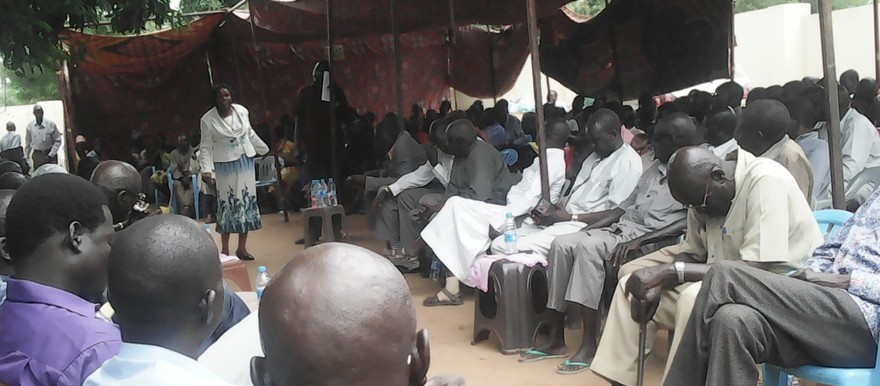Members of the Bor Community in Juba on Saturday expressed varying reactions over the division of their home state – of which Bor was the capital – by President Salva Kiir’s decree on Friday.
The decree cuts away the ethnic Bor from the five other tribes in the state, leaving only three counties of ethnic Dinka as a truncated new ‘Jonglei State’ a fraction of the size that it used to be.
In a function organized by Bor Community to bring people together in Juba over the weekend, a member of the National Legislative Assembly Maker Thiong Maal told Radio Tamazuj that the president has done what the people of Jonglei State especially the Bor Community have wanted.
He explained that with this division of the states, peace will come back to the nation as the states will satisfy the people and hence no one will look into another’s affairs.
“For example, our brothers who were with us, the Murle and the Nuer, there is one thing that will not be with the Nuer and they will look up to the Pibor and vice versa including the Mundari in Terekeka and this will create peace among the tribes as they interchange in between,” he said.
He said the president’s decision was in line with vision of ‘taking the towns to the people’ – bringing development to rural areas, in other words.
“Riek Machar even supported for a federal system of governance, he formed about 22 states and Salva only added 6 states to make about 28, so no one will really have a problem in the entire nation concerning this formation,” he added.
The decree was issued by the Office of the President without discussion by parliament. Information Minister Michael Makuei said the decree was an ‘order’ and it had nothing to do with the parliament.
Meanwhile, Biel Riek, a 37 year old member of the Jonglei Nuer students who lives in Juba said the division of the country’s biggest state into four parts could increase tribal conflicts among the six tribes of the state.
“I think the division by the president is not the best way to develop the areas but this will create more bad feelings against the other groups who are given a separate state, they will think that this is not my state and let me go there to steal and kill from there and that can happen and cause a lot of insecurity,” Riek said, referring to practices of cattle raiding and child abduction.
He said there is no way these divisions will bring peace in South Sudan.




